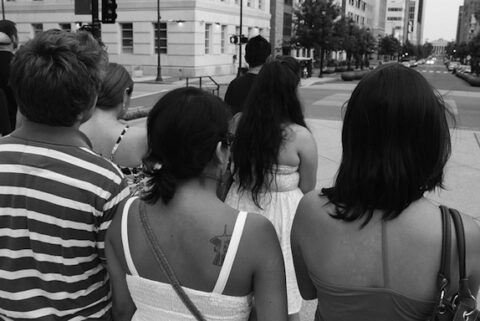Economic Impact

Administration Takes Step Toward More Entrepreneur-Friendly Immigration Policy
BY TEJAS SHAH*. While the U.S. economy continues to recover at a sluggish pace, the administration continues to emphasize immigration reform’s critical role in promoting innovation and entrepreneurship in the U.S. This week, Cecilia Munoz, the Domestic Policy Council Director at the White House, spoke at a forum hosted by The Hamilton Project of the Brookings Institution about the administration’s commitment to immigration reform and easing pathways for foreign investors in the United States. Sadly, however, talented and dynamic foreign entrepreneurs seeking authorization to direct, operate, manage, or work for their investment vehicles often face tedious barriers. Easing these barriers would benefit our economy and enhance our ability to out-compete other countries in the modern global economy. After all, with out foreign entrepreneurs, we wouldn’t have such U.S. companies as Yahoo, Google, and Intel. Read More

Comments Due on Proposed Rule that Will Help Keep American Families Together
The administration recently published a proposed rule that will help keep American families together. The “Proposed Rule on Provisional Unlawful Presence Waivers of Inadmissibility for Certain Immediate Relatives” is an effort to streamline the application process for many relatives of U.S. citizens currently eligible for a green card by minimizing the amount of time that applicants would have to be away from their families before being admitted into the United States. The proposed rule is currently in its “comment period,” and advocates are encouraged to submit comments in support of the rule. All comments are due on June 1, 2012. Read More

House Judiciary Committee Sends Wrong Mother’s Day Message with Amendments to VAWA
The House Judiciary Committee sent the wrong kind of Mother’s Day message to women this week, proposing to roll back protections for victims of violence that have been in place even before the Violence Against Women Act (VAWA) was first passed in 1994. While the proposed amendments were discouraging in their own right, the fact they were targeted at immigrant women is an even sadder commentary on just how much some members of Congress will use any legislation as a vehicle for attacking and undermining the immigration system. Read More

New Data Sheds Light on the Potential Power of Immigrant Voters
It is difficult to quantify the electoral power of immigrant voters. However, new data from DHS' Office of Immigration Statistics provides us with one way to gauge the electoral potential of the immigrant population. The numbers tell us how many Legal Permanent Residents (LPRs) arrived in each county of the United States since 1985. Using this data, it is possible to compare the number of post-1985 LPRs in each county against the margin of victory in the 2008 McCain-Obama contest. This helps to pinpoint where immigrants could be a potent electoral force if they naturalized and voted en masse. Read More

Rubio Proposal Overlooks Obstacles Ahead For DREAMers
Though it has yet to be introduced in Congress, Senator Marco Rubio’s alternative to the DREAM Act received an appraisal from the Washington Post this week, which noted that it represents an effort to shake the hard-line anti-immigrant sentiment voiced by many leading conservative politicians. The editorial also noted, however, that the outlines of his proposal promote what’s tantamount to “permanent second-class status.” Read More

House VAWA Bill Threatens Protections for Immigrant Women and Children
This year, the Violence Against Women Act (VAWA) is up for reauthorization. Last week, the Senate passed a reauthorization (S. 1925)—which provides protection to people who are the victims of domestic violence, rape, trafficking, sexual assault, stalking, and similar crimes—by a vote of 68-31. The House will takes up its own version next week, but in contrast to the Senate bill, which strengthened protections for immigrants, the House bill threatens to rollback protections for immigrant women and children who are victims of abuse. Read More

Nebraska Upholds Bill that Provides Prenatal Care to Undocumented Women
In a move that brought together an unusual group of allies, Nebraska’s Republican-controlled legislature recently upheld a bill that allows undocumented pregnant women to access state-funded prenatal care, overriding a veto by Republican Governor Dave Heineman. Nebraska Right to Life, Nebraska Catholic Conference, Planned Parenthood, and Nebraska Appleseed actually came together to support LB599, a bill the governor worked hard to kill. Why would Gov. Heineman, a man who describes himself as the one of the most pro life governors in America, oppose a bill that helps protect unborn children? Because, as the New York Times put it, he believes “government-financed health care for poor women is an acceptable thing, unless the women were in violation of immigration laws, in which case it was a terrible waste of taxpayer dollars.” Read More

Report Brings Border Patrol Abuses to Light in Washington State
The borderlands of the southwestern United States are not the only place where immigration enforcement tramples upon the most basic of civil and human rights. Many communities along the northern border are also subject to such abuses, as detailed in a recent report from OneAmerica and the University of Washington Center for Human Rights. The report, entitled The Growing Human Rights Crisis Along Washington’s Northern Border, is based on a year’s worth of interviews and observations in border communities in Washington State. This investigation found that Border Patrol agents, often acting in collaboration with local police, repeatedly harass and abuse immigrants, as well as native-born U.S. citizens perceived to look or sound like immigrants. Read More

Appellate Court Hears Arguments in Case Challenging DOMA, Bi-National Married Couples File New Suit
Same sex couples face often insurmountable hurdles when it comes to immigration status. Under the Defense of Marriage Act (“DOMA”), lesbian and gay U.S. citizens and lawful permanent residents are barred from obtaining immigrant visas for their spouses. When Congress enacted DOMA in 1996, no state celebrated marriages between gay and lesbian couples. But, the landscape has changed. Today, lesbian and gay couples in six states plus the District of Columbia have the freedom to marry under state law. This welcome progress, however, does not help the estimated 36,000 lesbian and gay bi-national couples living in the United States. Because DOMA prohibits immigration authorities from recognizing same sex marriages that are legal under state law, bi-national married couples continue to face potential separation. However, last week brought us closer to immigration equality for lesbian and gay couples. Read More

USCIS One Step Closer to Adopting Improvement to Immigration Waiver Process
A provision of the immigration law commonly known as the “3 and 10 year bars” has proven to be one of the most heart-breaking of the many draconian changes made to the immigration law at the time. Since its enactment in 1996, the provision—which imposes re-entry bars of 3 to 10 years on immigrants who are present in the U.S. illegally, leave the U.S., and want to re-enter lawfully—often separates family members, even if they are otherwise entitled to legal status in the U.S. Now, however, USCIS has published a proposed rule that will reduce, although not eliminate, the hardships created by this provision of law. The announcement has been received favorably, although with some skepticism, within the immigration community. Read More
Make a contribution
Make a direct impact on the lives of immigrants.
